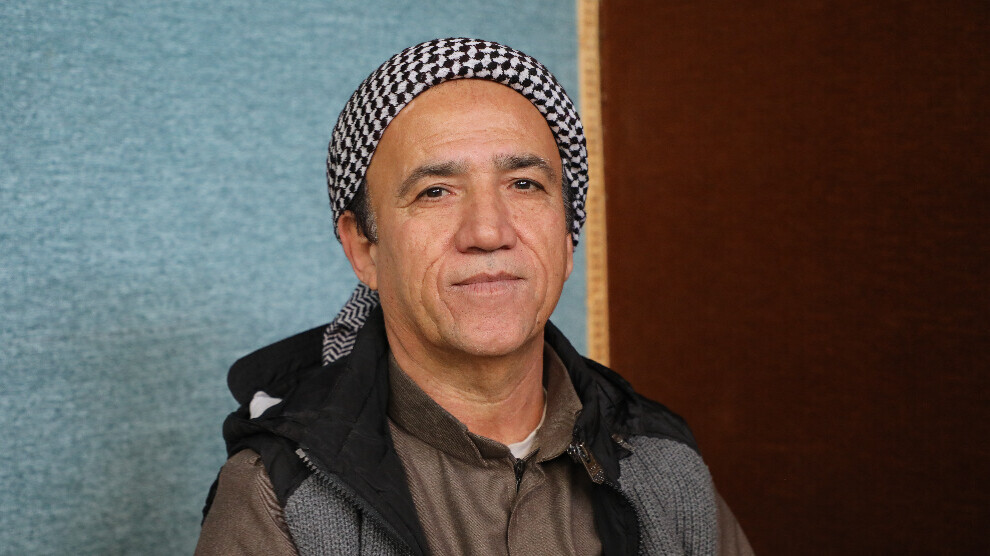Mehmûd Ehmed: We have broken the chains of slavery
Mehmûd Ehmed from Dêrik in Rojava recalls the history of Newroz and the connection to the PKK: "Through our fallen children, we woke up from a deep sleep and broke the chains of slavery."
Mehmûd Ehmed from Dêrik in Rojava recalls the history of Newroz and the connection to the PKK: "Through our fallen children, we woke up from a deep sleep and broke the chains of slavery."

Mehmûd Ehmed comes from Dêrik in Rojava. He got to know the PKK at a Newroz celebration in Ayn Diwar in 1987. In an interview with ANF, he spoke about the changing significance of Newroz.
Before the presence of the PKK, Newroz was celebrated more as a family festival, far removed from its original resistance character, said Ehmed and continued: "With the PKK, Newroz became a revolutionary and national festival. I experienced Newroz being celebrated differently for the first time in 1987. With the resistance of Mazlum Doğan, we realised that Newroz is a day of resistance, of the martyrs, of the struggle of the oppressed peoples for their lives, a new day, a day of unity and solidarity. With the history of the PKK, we realised the true meaning of Newroz."
Ehmed stated: "Before Newroz, festive clothes were sewn. Traditional costumes were made even for the children. The youngest to the oldest greeted Newroz in a colourful variety. The day before Newroz, people went to the festival site. They provided security and decorated the square. The Newroz programme lasted about twelve hours. People were very interested in theatre. The struggle of the PKK and the guerrilla war were staged. The music was about the revolution, emphasised the resistance of the people of Kurdistan and drew attention to the guerrilla war. The dances reflected the culture of the Kurdish people."
Ehmed told how Newroz was celebrated particularly strongly after the massacre of Qamişlo on 12 March 2004 in Dêrik, which was orchestrated by the Syrian regime: "The Baathist regime wanted to instill fear in the population, suppress the voice of the Kurdish people and rob them of their identity. Dozens of people were arrested after the massacre and the fate of many of those affected is still unknown today. Despite this atmosphere, the people of Dêrik celebrated Newroz in the village of Bacarîq in 2004. Some could not resist the Ba'ath regime and withdrew, but we celebrated Newroz as a response to oppression, torture and massacres with a large crowd and special enthusiasm."
Mehmûd Ehmed remembered the revolutionary martyrs Mazlum Doğan, Zekiye Alkan and Rahşan Demirel and emphasised that this year's Newroz festival should be celebrated in the spirit of brotherhood among the peoples. He added: "Our sons and daughters have sacrificed their lives to protect our country and our honour and to prevent the Kurdish people from being erased from history. Thanks to their precious blood, we have awakened from the deep sleep we were in. We have broken the centuries-long chain of slavery. With this spirit and resistance, we must shout out our demand for the physical freedom of Rêber Apo [Leader Abdullah Öcalan] in the Newroz squares."